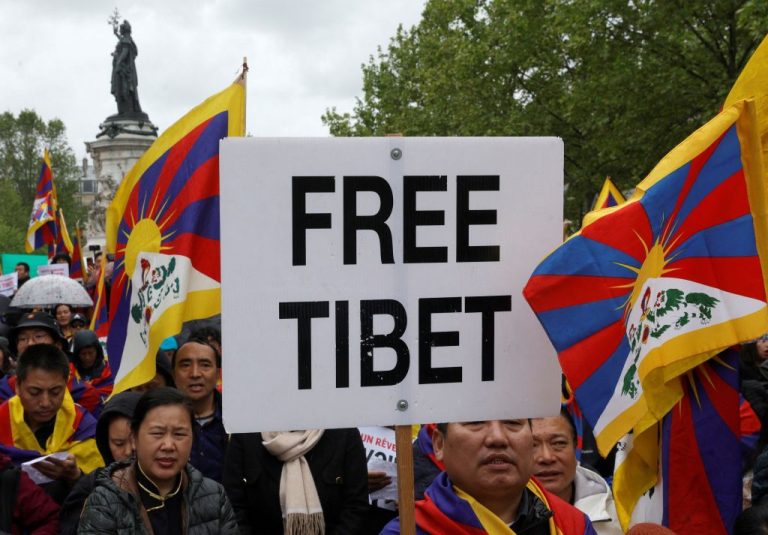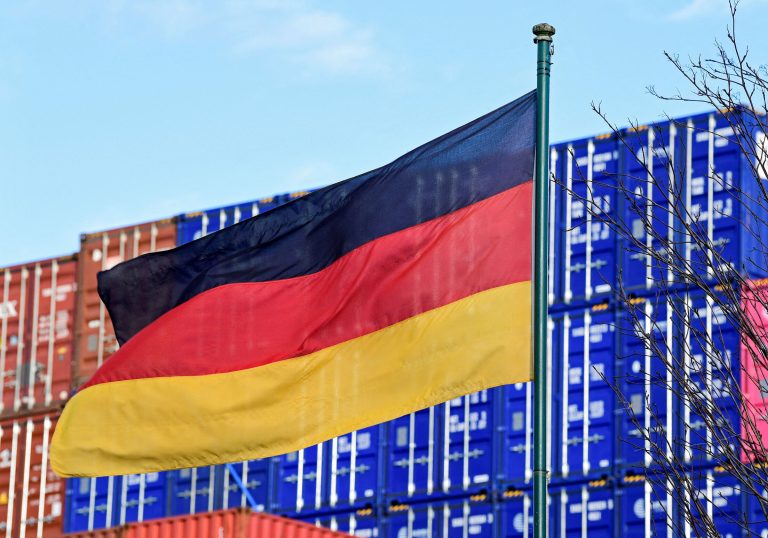On May 5, as Chinese President Xi Jinping arrived in Paris, France, he was welcomed by flags and banners wielded by disgruntled activists — mainly Uyghur, Tibetan and Chinese — all jeering at him.
“Free Tibet. Dictator Xi Jinping, your time is up!” a white banner read as Xi’s motorcade passed under an overpass along Boulevard Peripherique. The banner also featured the Tibetan flag, symbolizing the Tibetan independence movement of “Free Tibet.”
Ethnic Tibetans from many parts of Europe have come to Paris to voice their grievances against Xi’s draconian repression of minor ethnicities, mainly restrictions on “religious and cultural expression” in Tibet, Radio Free Asia (RFA) wrote.
“Under Xi Jinping’s rule, the situation in Tibet has gone from bad to worse,” Tenzin Yangzom, campaigns coordinator at International Tibet Network, said in a statement.
“Today, we confronted Xi with our message that his time is up!”
Success
You are now signed up for our newsletter
Success
Check your email to complete sign up
Uyghurs have also joined the rallies, hoping to expose the Chinese Communist Party’s (CCP) wrongdoings upon the Uyghur population in the western region in Xinjiang, including mass imprisonment. Such acts have been declared crimes against humanity by the U.S. and other Western governments.
The protestors also include other Chinese, Taiwanese, Mongolian and Vietnamese human rights activists, in addition to pro-democracy supporters from Hong Kong.
Mass gatherings at Paris’ Place de la République, attended by 1,000 protesters, calling for the end of Tibetan repression and the halting of dam construction in the Tibetan region. Marches to the Place de la Bastille lasted more than four hours.
Uyghurs crowded Madeleine Square to cry out their anger towards Xi, Dilnur Ryhan — president of the European Uyghur Institute — said.
READ MORE:
- ‘No Concessions on Democracy and Freedom’: Taiwan’s New President Tells Beijing
- Cross-Strait Tensions Rise Ahead of Taiwan’s Presidential Inauguration
- Hong Kong Court Formally Bans Protest Anthem ‘Glory to Hong Kong’
Chinese activists divided
Pro-communist activists countered the protests, waving Chinese flags as they attacked the other protesters; all while Chinese agents watched from afar.
Chinese dissidents of the communist government joined in the protests. One simply known as Jiang — an artist in Paris who is part of the Freedom Square group — said that the CCP’s repression on Tibet and Hong Kong are not supported by all Chinese citizens.
“These views are actually different from ours,” he said. “We want to convey to the outside world that China does not only have one voice, and Xi Jinping does not represent us.”
Another dissenter, Liu Feilong, joined the protests in Paris, having traveled from the Netherlands.
“Xi Jinping not only harms people living in China, but also infiltrates democratic countries in Europe and America, posing a serious threat to universal values,” he said. “I escaped from China for freedom and found the freedom I wanted in the Netherlands, so I should also defend freedom and universal values.”
Xi’s diplomatic visit across Europe
For two days, the communist leader met with French President Emmanuel Macron and European Commission President Ursula von der Leyen, regarding diplomatic ties between France and China.
This is part of Xi Jinping’s European tour; the first he has conducted in five years, intended to bolster stronger relations with eastern European countries, especially as Russia’s war in Ukraine continues.
He had already visited Serbia and Hungary, which are veering towards authoritarian rule. The two countries seek to gain from China’s Belt and Road Initiative; a dubious project, fraught with risk, to link China with other countries.
French politicians have called on President Macron to pressure Xi into resolving the Tibet issue, according to a letter published on May 2 and signed by 14 senators.
“The resumption of Sino-Tibetan dialogue and respect for the rights of the Tibetan people must be at the heart of the French strategy vis-a-vis China,” the letter read, referring to China having ceased talks in 2010, between Beijing and the Dalai Lama.







